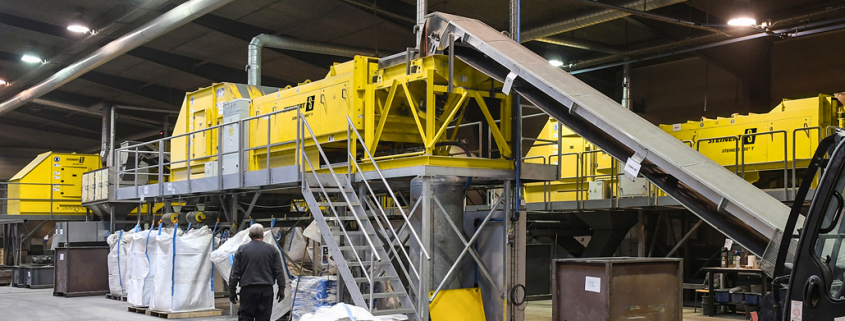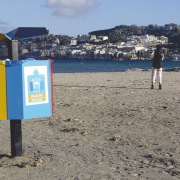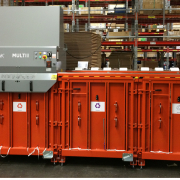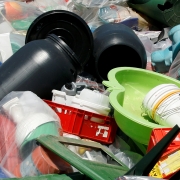Maximum Aluminium Purity for the Circular Economy
In order to conserve resources, we need to reuse raw materials as often as possible. That requires recycling material flows that have the highest and most consistent quality possible. It is only with efficient sorting technology that resources can be continually recycled. The STEINERT XSS T uses X-ray transmission (or XRT for short) to reliably achieve extremely high purity levels when recycling aluminum. EVO 5.0 is the latest evolutionary stage. Customers explain here why they are so impressed with the equipment.
More and more companies are looking to save resources and expand their use of secondary raw materials. STEINERT has long been an important partner to metal recycling firms. Its technology for dry density separation has been successfully established for several years now. The systems are based on x-ray transmission and are designed especially for separating heavy and light metals in metal processing. The STEINERT XSS T produces extremely pure aluminum. The sorting equipment’s detection rates are so precise that it can achieve an aluminum purity of 99.8 percent.
Sorting from incinerator bottom ash residue
The Scanmetals group of companies has three sites in Europe where it produces non-ferrous metals out of incinerator bottom ash (IBA) from waste incineration plants. The cleaned and separated metal fractions are sold around the globe to primary and secondary smelters, refineries, foundries and mills.
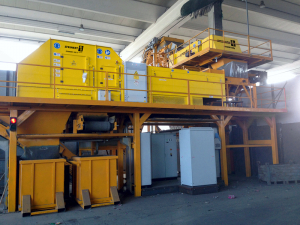
The software and design of the STEINERT XSS T EVO 5.0 sorting system make it particularly durable and robust (Photo: STEINERT)
The Danish company gets all its sorting solutions for non-ferrous metals from STEINERT. The owner, Ejvind Pedersen, likes the fact that this centralized method of procurement saves time, allowing him to concentrate on developing innovative recycling ideas. Pedersen compares the efficiency and reliability of STEINERT with that of German automotive manufacturers. He stresses the confidence that his production staff has in the equipment and how easy the technical components are to operate.
It’s about more than price alone
The Stena Recycling group of companies has a network of 178 recycling plants in Europe and employs more than 3,500 people. Every year, Stena recycles over six million tons of complex waste materials. The Stena Nordic Recycling Center handles 500,000 tons of complex materials annually, saving 870,000 tons of emissions. Jesper Fournaise, Outbound Sales Manager at Stena Recycling S/A, is responsible for the production and sale of aluminium. “We’re the green gods,” is how Fournaise describes his team. By this, he means that scrap is converted into recyclable material that is fed back into the production cycle.
According to Fournaise, for a long while, it has not just been about the sales price of a metal: “Our customers, the smelters, save CO2 by using secondary raw materials and sorting is one of the most important primary stages. Because we strive for qualities similar to those of primary aluminum, we opted for sorting technology from Steinert. Steinert simply delivers the exact values we need.”
(Published in GLOBAL RECYCLING Magazine 2/2023, Page 18 -Advertorial-, Photo: STEINERT)

